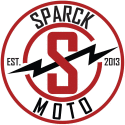Split sytsems with a heat pump barely heat when it is under 40 degrees F. Out. Below 20 they supply no heat at all. To heat then, they use either electrical resistance heating, or if they are variable speed compressors, they "misfire" the VFD to cause the motor to heat and pump that into the house. Heat Pumps essentially take the heat out of the outside air and move it indoors. When it gets too cold, the refrigerant is ineffective, so it is like there is no heat to move.
Heat pump type units are great in mild climates, like around North Carolina...they are not efficient in New Jersey and north. They will supply heat, but it is electrical resistance heating. You can buy an electric baseboard heater for the same effect.
The mini splits will work in mild weather, and in warm weather for air conditioning (Cooling). But for serious heating needs, unless your electric is $0.05 a KW/hr, They are more costly than gas or oil heat .
I live in Northern NJ. I was considering a "Hybrid system", a unit with a heat pump and a gas furnace. In no scenario was the heat pump less costly then running a 96% gas furnace.
If electric is cheap, an electric baseboard unit would be simpler to operate, with less chance of failure.
My Church put a Dozen Split systems in for the classroom (Against my recommendations - I work for the the largest AC company, BTW). After the first winter they had to add electric baseboard to supplement the heating, as the rooms would drop below 50 degrees. This is when they were occupied.



